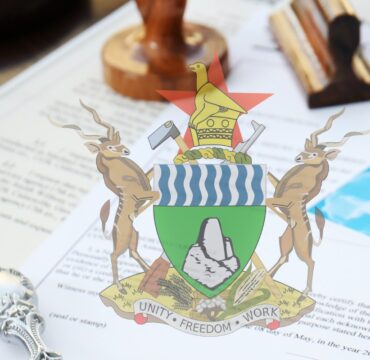Consular Information

OUTLINE
- The Consular Services Department’s core objective is to provide and facilitate prompt consular services to Zimbabwean and foreign nationals through the following:
- Administrating the Vienna Convention on Consular Relations (1963), including liaising with Foreign Embassies’ with respect to their nationals in Zimbabwean prisons (Consular visits)
- Repatriation of human remains;
- Authentication of Zimbabwean Official documents;
- Facilitating the issuance of Diplomatic and Service Passports and other official Zimbabwean documents;
- Facilitation of visa processing;
- Deportation of foreign illegal immigrants; and,
- Technical assistance to clients’ queries
The Vienna Convention on Consular Relations
- The Convention was adopted in Vienna on April 24, 1963. The United Nations Conference on Consular Relations, which took place at the NeueHofburg from March 4 to April 22, 1963.
- There are 179 state parties to the convention including most UN member states and UN observer states Holy See and the State of Palestine. The signatory states that have not ratified the convention are: Central African Republic, Israel, Ivory Coast and Republic of Congo.
- The UN member states that have neither signed nor ratified the convention are: Afghanistan, Burundi, Chad, Comoros, Guinea-Bissau, Ethiopia, Palau, San Marino, Solomon Islands, South Sudan, Swaziland and Uganda.
- http://legal.un.org/ilc/texts/instruments/english/conventions/9_2_1963.pdf
- The Vienna Convention on Consular Relations: Highlights
- Article 5 lists thirteen functions of a consul, including “protecting in the receiving State the interests of the sending State and of its nationals, both individuals and bodies corporate, within the limits permitted by international law” and “furthering the development of commercial, economic, cultural and scientific relations between the sending State and the receiving State.”
- Article 36 addresses communications between consular officers and nationals of the sending state. The Convention provides that “consular officers shall be free to communicate with nationals of the sending State and to have access to them.” Foreign nationals who are arrested or detained be given notice “without delay” of their right to have their embassy or consulate notified of that arrest, and “consular officers shall have the right to visit a national of the sending State who is in prison, custody or detention, to converse and correspond with him and to arrange for his legal representation.”
- Article 37 provides that the host country must “without delay” notify consular officers of the sending state if one of the sending state’s nationals dies or has a guardian or trustee appointed over him.

Driver’s License
For confirmation of validity of Zimbabwean Drivers Licenses for holders living outside Zimbabwe, applicants should contact the nearest Embassy of

Notice of Birth
Application for a birth certificate for children born outside Zimbabwe can be done at the Embassy nearest to where the child was born. Please contact…

Visa Information
Welcome! This page provides information about visas. A visa is an official document issued by a country that allows you to enter and potentially stay…

Police Clearance
Applicants living outside Zimbabwe who need a police clearance from Zimbabwe are required to:

Authentication of Zimbabwean Documents
Authentication of documents issued by the Government of Zimbabwe (apostille/ certification stamp) is done by the Ministry of Foreign Affairs and International Trade in Zimbabwe

Temporary Travel Document (TTD)
A holder of a Zimbabwean passport may apply for a Temporary Travel Document in the event of an urgent need to travel to Zimbabwe







